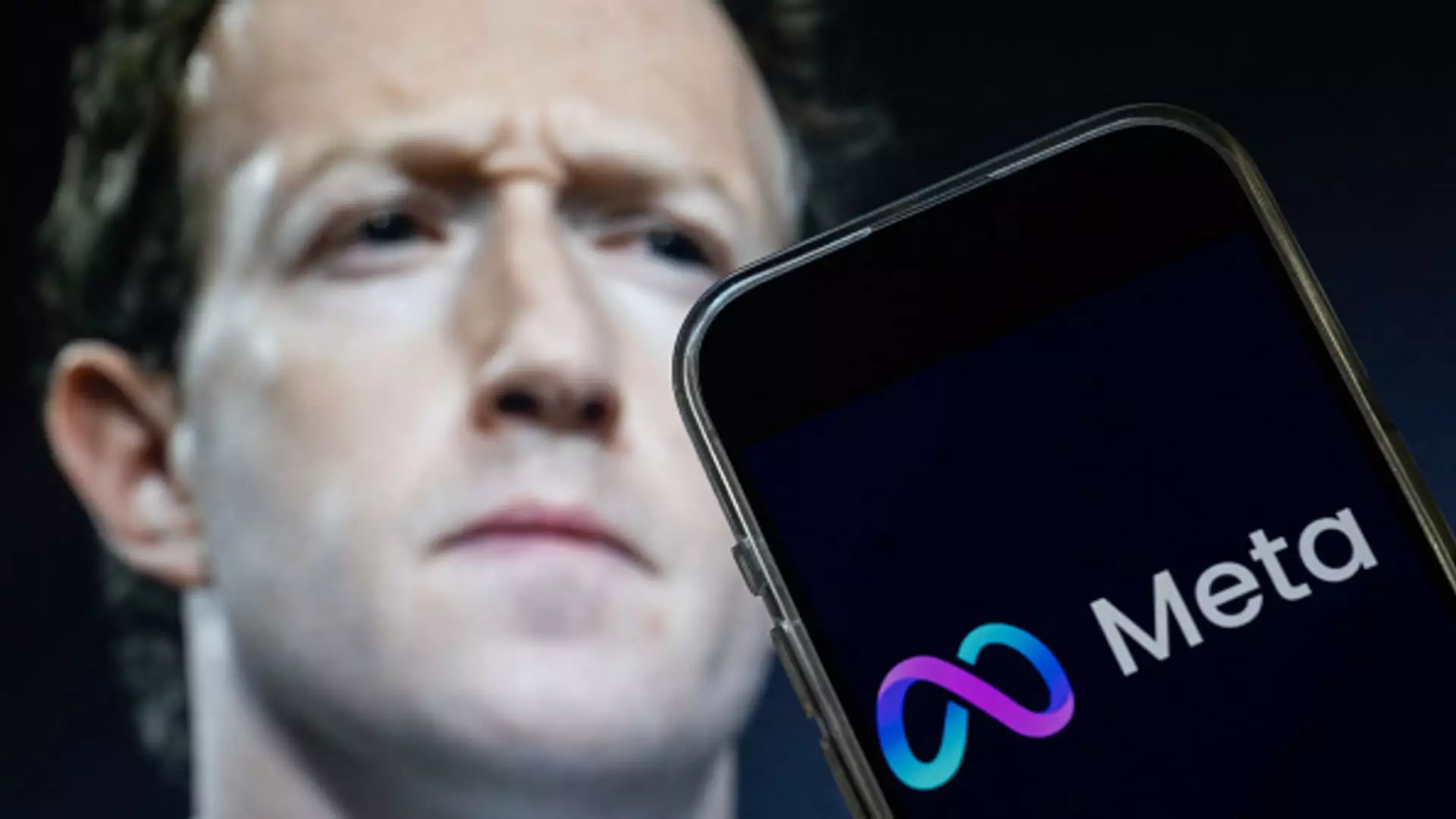In the realm of social media and digital communication, maintaining the integrity of information is a cornerstone for platforms claiming to foster free expression. On Tuesday, Meta employees voiced strong discontent over the company’s recently announced decision to discontinue third-party fact-checking of its content just weeks before the inauguration of President-elect Donald Trump. The announcement, made by Joel Kaplan, Meta’s new chief global affairs officer, has sparked a heated internal debate concerning the ramifications of such a policy shift on public discourse.
Kaplan’s announcement, conveyed via the company’s internal communication tool, Workplace, emphasized that the modification in content policy represents a commitment to “free expression.” However, numerous employees are apprehensive about the implications this decision might hold. Many believe it signals a disturbing propensity to prioritize freedom of expression at the expense of factual integrity, potentially nurturing an environment where misinformation can proliferate unchecked. One employee articulated this concern succinctly, suggesting that the message being sent is that “facts no longer matter,” while conflating this stance with a victory for free speech.
This apprehension isn’t unfounded. The shift towards a user-generated content verification system—akin to what platform X refers to as Community Notes—raises questions about the reliability and motivation of users in determining the authenticity of information. The potential for increased dissemination of falsehoods, particularly on sensitive subjects such as immigration and gender identity, looms large in the minds of concerned employees. The fear of witnessing a resurgence of harmful rhetoric, including racism and transphobia, adds to the groundswell of anxiety within the organization.
Despite the prevalent disapproval, some Meta employees commended the decision to relinquish third-party oversight of content moderation. They argue that models like X’s Community Notes have shown promise in democratizing the process of verifying information. Yet, this perspective raises critical questions about what constitutes “truth” in an increasingly polarized environment. Who decides what is accurate, and how do biases affect those decisions?
Interestingly, the internal criticism conjured up memories of Meta’s previous forays into content moderation. Before the announcement, the company had already been gradually retracting its commitment to robust fact-checking, having let go of projects designed to incorporate insights from reliable news outlets such as the Associated Press and Reuters. Employees have begun to wonder whether the rollback was just the tip of the iceberg, hinting at deeper systemic issues within Meta’s governance structures.
Accompanying the policy changes, the restructuring of Meta’s board—most notably the inclusion of executives like UFC CEO Dana White—has further incited skepticism. White’s controversial past, punctuated by incidents of public misconduct, raises alarm bells among employees regarding the ethical standards of the company’s leadership. As internal vectors of dissent grow, some staffers jokingly suggested performance reviews might resemble mixed martial arts bouts, highlighting both the absurdity and the seriousness of the underlying dissatisfaction with the new board members.
The decision to diversify board representation with leaders from entertainment and sports—fields often distant from tech—has led to profound questions about the future direction of Meta’s corporate culture and whether these appointments resolve the pressing issues at hand or divert attention from core technological responsibilities.
Encouragingly, some voices within Meta have stressed the importance of adhering to communal standards, particularly when voicing concerns about leadership. Yet, when internal criticisms began receiving flags or removals for breaching company policies, it posed troubling implications for the culture of open dialogue. Employees who aimed to share perspectives or critique our own organizational decisions were left questioning the authenticity of the space they occupied.
As various posts expressing dissent regarding Kaplan’s policies were erased from Workplace, a conflict between upholding a respectful environment and allowing critical discourse emerged, highlighting the fine line between community engagement expectations and corporate censorship. This ongoing strife may reflect a larger discourse within tech companies about how to balance transparency, accountability, and the essential nature of constructive criticism.
Meta finds itself navigating a turbulent landscape, recalibrating whether its identity aligns more closely with unregulated free expression or the indispensable need for factual accuracy. As employees grapple with these choices, it is vital for Meta to reflect earnestly on not just the implementations of policy changes, but also their broader impact on both the internal culture and external public trust. The intersection of technology, freedom of speech, and responsibility demands careful consideration and vigilance, lest the pendulum swing too far towards the chaos of misinformation.

